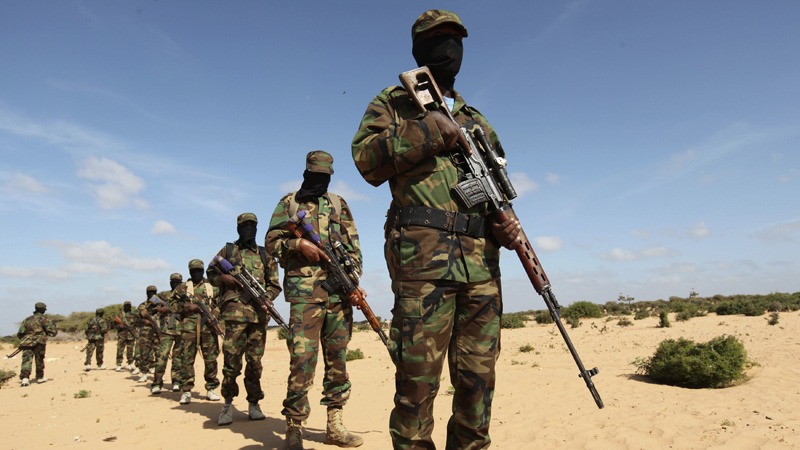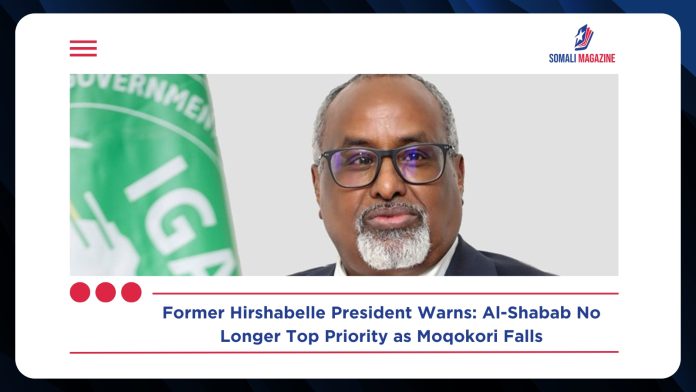Facebook Twitter (X) Instagram Somali Magazine - People's Magazine
Eliminating al-Shabab is no longer our top priority, says former Hirshabelle president, in a stark warning that Somalia’s counterinsurgency campaign may be losing momentum. Mohamed Abdi Waare, who now serves as deputy executive secretary of the Intergovernmental Authority on Development (IGAD), made the statement on Monday following the militant group’s dramatic capture of Moqokori town in Hiiraan.
Waare criticized the Somali federal government and regional states for what he described as a dangerous shift in focus away from the fight against al-Shabab. “Three years ago, I said we had defeated Shabaab on the battlefield. Today, they’ve regrouped and launched a concentrated assault in Moqokori, while the rest of the country looks away,” he wrote in a public post.
The former president’s remarks came just hours after al-Shabab militants overran Moqokori in a coordinated attack involving suicide bombers and hundreds of fighters. The town, a strategic crossroads in central Hiiraan, had remained under government control for three years. Residents reported intense clashes and multiple explosions, while communications were cut during the assault, complicating casualty verification.
Waare lamented the lack of active frontlines outside Hiiraan, suggesting that other regions have disengaged or deprioritized the counterinsurgency. “It is clear to ourselves, to our partners, and indeed to Shabaab itself, that eliminating this terror group is no longer our number one priority,” he said.

His comments have sparked debate across Somalia’s political and security circles, with lawmakers from Hiiraan accusing the federal government of failing to respond to calls for air support during the weekend attack. Defence officials have yet to publicly address the fall of Moqokori or outline plans for retaking the town.
Waare also blamed ongoing political quarrels for weakening Somalia’s ability to maintain a unified national front. “We can still defeat Shabaab,” he added, “but only if we stop the political distractions, the manufacturing of petty issues and artificial crises, and find a common purpose. Anything less is just the proverbial Somali merry-go-round—‘Ila Meereeyso’.”
The warning comes at a time when Somalia is transitioning from the African Union Transition Mission in Somalia (ATMIS) to the new AU Support and Stabilization Mission in Somalia (AUSSOM). While the government has made gains in reclaiming territory, analysts say the lack of coordinated post-conflict stabilization and political unity could allow al-Shabab to regroup.
Waare’s remarks have reignited calls for a national security summit to realign priorities and restore momentum in the fight against extremism. Civil society groups and international partners are urging Somali leaders to put aside internal disputes and recommit to a unified counterterrorism strategy.
As the country prepares for the 2026 elections, the resurgence of al-Shabab in key regions like Hiiraan could pose a serious threat to national stability. Whether Waare’s warning will prompt a strategic reset remains to be seen, but the fall of Moqokori has made one thing clear: Somalia’s fight against al-Shabab is far from over.

